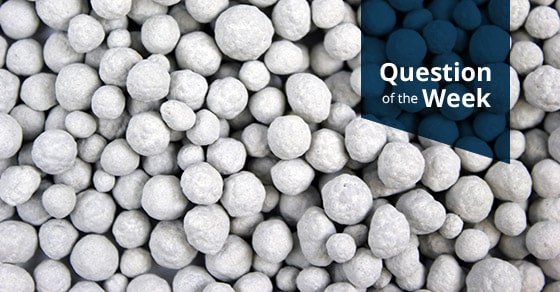Similar with any mineral, phosphates can present challenges during processing.
The following looks at the common material characteristics that may cause such challenges when working with phosphates.
Abrasiveness. Phosphates can range from slightly to tremendously abrasive, depending on what form they are in.
Abrasive materials can potentially harm unprotected equipment. This should be considered when designing phosphate processing equipment.
Corrosiveness. Phosphoric acid, the base of many phosphate products, is extremely corrosive. Specialty alloys and equipment linings are often needed to protect against this corrosion.
Dusty. Phosphates can be dusty, and thus, be difficult to handle and transport. This is particularly true for phosphate rock upon drying.
Clumping. Phosphate products can also succumb to clumping, and subsequently, build-up, which may clog equipment.
Equipment add-ons or modifications can be made to combat clumping. For example, knocking systems are commonly added on rotary dryers to “knock” or dislodge clumps from within the dryer.
Variability. The make-up of phosphate ore greatly varies from one deposit to the next, and even within the same deposit. Due to the diversity of the phosphate deposits, custom equipment is best.
Testing is highly recommended when working with phosphates, to help work out the material variables noted above. The combination of testing and intricate equipment design creates an efficient and effective process, and ultimately end-product, unique to each specific phosphates deposit.
FEECO’s experience in processing phosphates spans several decades. We offer the best in testing services, process design, and custom equipment. Contact FEECO today for more information.


